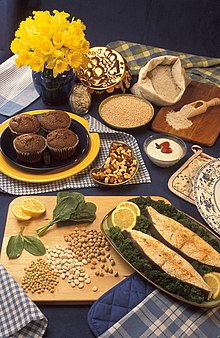Juicing Benefits: 25 Ways in Which Juicing Can Turbo-Charge Your Life!
 There are hundreds of ways in which juicing benefits your health and adds extra power to your nutrition plan. Here are the top 25.
There are hundreds of ways in which juicing benefits your health and adds extra power to your nutrition plan. Here are the top 25.
1. Quick absorption of nutrients due to the fruits and vegetables being “pre-digested” and requiring little of your body in order to reap their nutritional benefits.
2. Fresh, raw juices contain many important enzymes that are destroyed in the process of making bottled, pasteurized juices or cooking.
3. Juicing is an easy way for people with gastrointestinal issues such as Crohn’s disease, ulcerative colitis, and irritable bowel syndrome to get the nutritional benefits from produce without the insoluble fiber that can potentially irritate sensitive intestinal tracts.
4. Juicing requires a large volume of produce. This results in increased nutritional density due to concentrating the juices of so many fruits and vegetables into one easy-to-drink glass of juice.
5. The high nutritional density of fresh juices results in many people experiencing juicing benefits like increased energy, decreased lethargy, better skin and hair, etc.
6. The chlorophyll in green juices is believed to have beneficial properties such as building the blood and protecting against the harmful effects of red meat consumption.
7. Consuming freshly made juices may help boost immunity.
8. Most fruits and vegetables contain powerful anti-cancer substances such as antioxidants. Juices are the most concentrated way to consume these substances and to harness their cancer-fighting properties.
9. For those on low-residue diets or who need to give their gastrointestinal system a rest, juicing is a great way to meet one’s nutritional needs.
10. People who don’t enjoy eating vegetables may find that vegetable juice is tolerable or even delicious, by itself or mixed with fruit juices.
11. Fresh juices can be used in salad dressings, marinades, mixed drinks, and other recipes.
12. Wheatgrass juice may help reduce chemotherapy side effects.
13. Many people have trouble consuming the recommended number of servings of fruits and vegetables
14. People with reduced appetite due to medical conditions or medications may find it easier to meet their nutritional needs by incorporating juices into their diets.
15. Grape juice protects your cellular DNA from damage and protects cardiovascular health.
16. Juicing vegetables from the cabbage family (kale, cabbage, Brussels sprouts, broccoli, etc.) concentrates their cancer-fighting phytochemicals
17. Raw juice contains enzymes that can help with digestion and defense against disease, and which are destroyed in pasteurized juices.
18. Juicing benefits the absorption of some nutrients, such as beta carotene, by removing fiber.
19. Many people consume too little water. Water is a main ingredient in fruits and vegetables and makes up the bulk of any juice. Juicing may increase a person’s water intake.
20. Some healthcare practitioners believe the alkalizing effects of vegetables are beneficial for cancer patients and general human health, and juice is a way to increase these benefits.
21. Juices high in anti-inflammatory compounds such as Omega 3 fatty acids and certain antioxidants may help prevent or treat inflammatory conditions such as arthritis, asthma, eczema and heart disease.
22. Juicing concentrates Omega 3 fatty acids and therefore increases one’s intake of these vital fats.
23. You can juice parts of the produce that may not be pleasant to eat whole, such as the greens of carrots and the skin of cucumbers. This also helps reduce waste and maximize your budget by using the entire plant.
24. Research shows that vegetable juices may help promote weight loss and weight management.
25. The biggest benefit of juicing is the most obvious: juices taste great!
